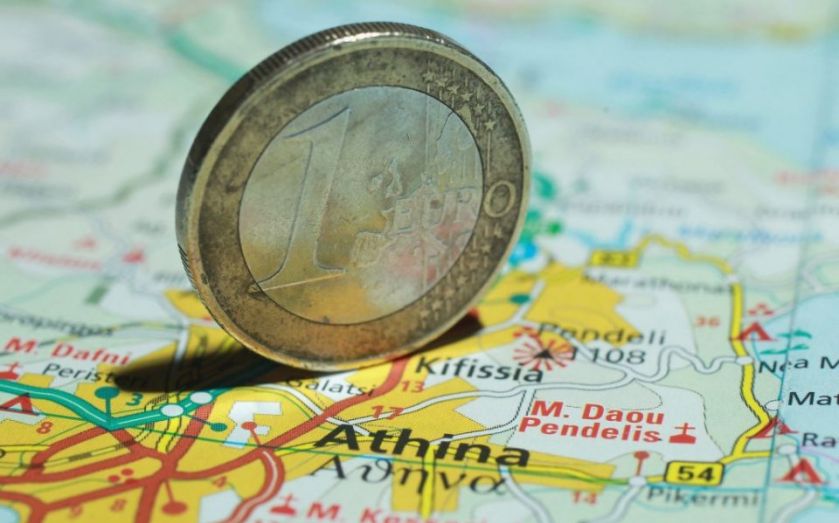The five sins of the Greek crisis that could doom Europe to irrelevance

There is nothing so dangerous in foreign affairs as being half right. All along, this has been the primary reason I have been far more sceptical about a happy ending to the present euro crisis than conventional wisdom allows for. Both the Greek and German protagonists think they are entirely morally correct. Such an absolutist position makes genuine compromise extremely difficult, however many short-term fudges they can manage. Worse, given the realities underlying the crisis, there is absolutely no sign that Europe has remotely begun to “solve” its problems. Instead, it appears to be sleepwalking ever closer to absolute decline.
There are five besetting fallacies lurking beneath the Eurozone’s present difficulties, the sins that make the euro crisis such a Gordian Knot. First, why in the world was Greece let into the euro in the first place? On my first serious trip abroad, as a representative of a major US think tank, I naively asked the high-level Greek and European officials assembled in Athens in the early 2000s if anyone believed that the “official” Greek fiscal numbers were real. I’ll never forget the incredulous response to my innocence; my query was met by amused and slightly malicious laughter, as if I was the only one in the room who did not understand the cynical game being played.
Greece was admitted – damn the consequences – because Athens was seen as the birthplace of democracy, and euro-federalists, such as the present German finance minister Wolfgang Schauble, were in full flower, transforming the European dream into a faux religion. They wanted Greece in for symbolic reasons, whatever the economic realties; surely it is the Greek notion of hubris that is presently coming back to haunt them.
Second, and here Greek finance minister Yanis Varoufakis is on the money, the huge European bailouts of the past few years have not served the Greek people one jot. They have merely taken clueless German, French, and other European banks off the hook – private institutions that were dumb enough to loan Greece boatloads of cash – and shifted their exposure onto the put-upon European taxpayer. In essence, the bailouts have saved German banks and not the Greek people. For this fact to be conveniently glossed over by German officials, superiorly talking about all-too-real Greek deficiencies, is maddening; worse, it illustrates a lack of understanding.
Third, far-left Syriza won the recent Greek election based on a wholly false premise: that Greece could maintain its euro membership while indulging in the party’s far-left spending fantasies, with the Germans paying for such a flight of fancy. Syriza is to blame but, then again, in a democracy so are the people who believed this nonsense, which amounts to little more than adolescent wish-fulfilment. As every parent of a teenager has been forced to say, you cannot do what you want unless you are able to pay for it.
Fourth, elections – while vitally important – do not magically overturn all the commitments made by a country’s previous governments. Only fanatics like the Khmer Rouge in Cambodia believe you get to start history over at the year zero. We all benefit from – and are weighed down by – everything that has come before. There is no doubt that Syriza has been dealt a very bad hand by past inept and corrupt Greek governments, just as there is little doubt that Syriza would not find itself in power if the Greek establishment had proved moderately competent. In other words, they have won and lost by all that has come before them. But they do not get to pretend that history does not matter.
Finally, whatever compromises are agreed upon in the short term, the basic intractable Eurozone crisis isn’t remotely going away. Although Europe looks set to succeed in throwing the Greek plate in the air – giving Athens four months to negotiate what amounts to a third bailout – there is precious little sign that the problem is being mastered.
Here both sides are to blame. Berlin is indeed overly fixated on austerity, just as Greece wants to live in a world where it can spend money like a drunken sailor. But it is only slow, painful, structural reform – particularly labour market and pensions reform – that can truly transform Greece and the rest of Europe; and that will take years. The best-case deal would be for the north to relax its obsession with the Greek primary surplus – allowing it to fall to around 1.5 per cent of GDP as Varoufakis wants – in return for iron-clad and non-negotiable commitments to structural reform over the next half decade.
Without discarding these five besetting intellectual sins, and despite the drama, Greece is doomed to fail, just as Europe is doomed to irrelevance.
Dr John C Hulsman is senior columnist at City A.M. He is a life member of the Council on Foreign Relations, and author of Ethical Realism, The Godfather Doctrine, and Lawrence of Arabia, To Begin the World Over Again. He is president and co-founder of John C Hulsman Enterprises (www.john-hulsman.com), a global political risk consultancy, and available for corporate speaking and private briefings at www.chartwellspeakers.com.